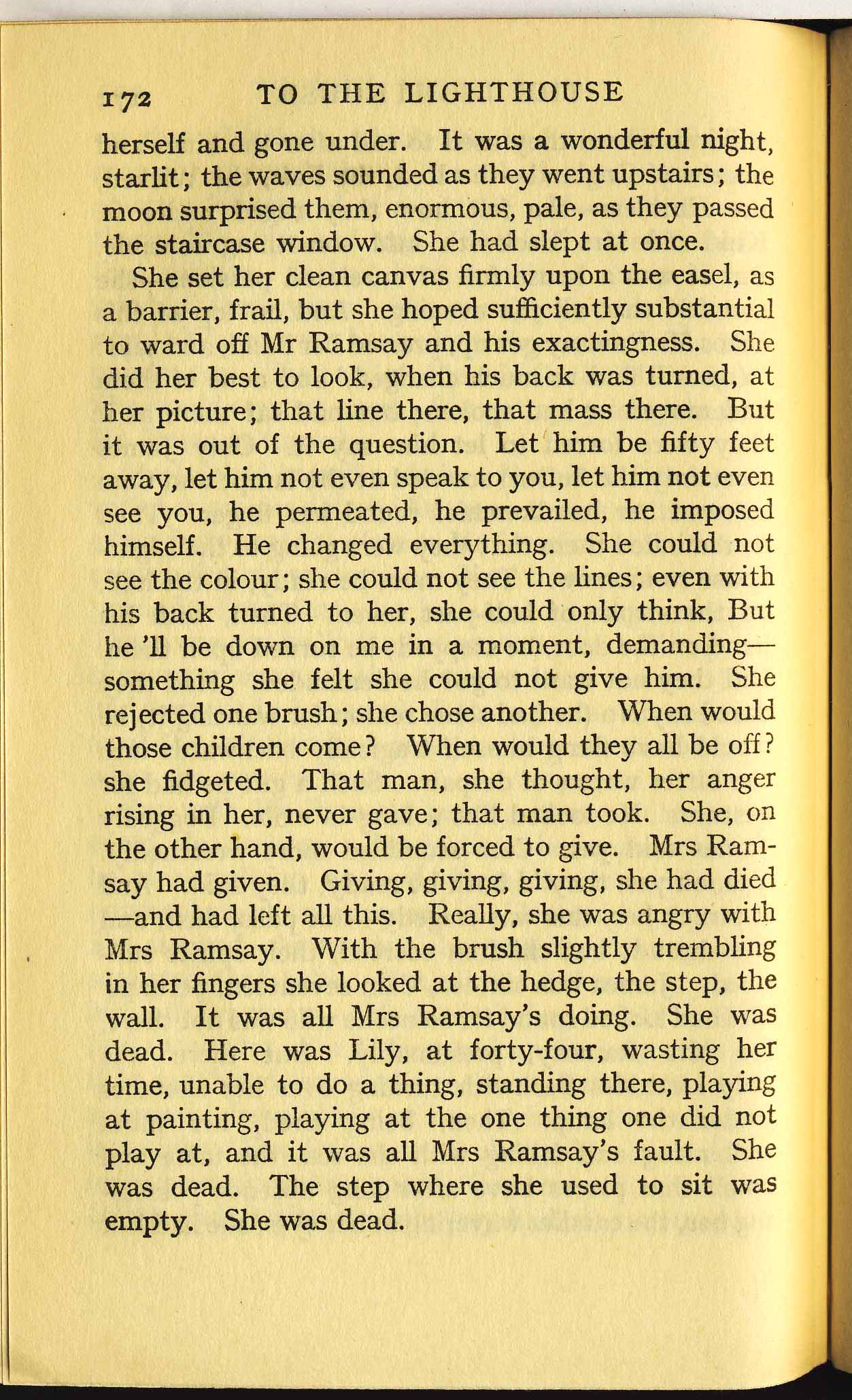
She set her clean canvas firmly upon the easel, asa barrier, frail, but she hoped sufficiently substantialto ward off Mr Ramsay and his exactingness. Shedid her best to look, when his back was turned, ather picture; that line there, that mass there. Butit was out of the question. Let him be fifty feetaway, let him not even speak to you, let him not evensee you, he permeated, he prevailed, he imposedhimself. He changed everything. She could notsee the colour; she could not see the lines; even withhis back turned to her, she could only think, Buthe’ll be down on me in a moment, demanding—something she felt she could not give him. Sherejected one brush; she chose another. When wouldthose children come? When would they all be off?she fidgeted. That man, she thought, her angerrising in her, never gave; that man took. She, onthe other hand, would be forced to give. Mrs Ram-say had given. Giving, giving, giving, she had died
—and had left all this. Really, she was angry withMrs Ramsay. With the brush slightly tremblingin her fingers she looked at the hedge, the step, thewall. It was all Mrs Ramsay’s doing. She wasdead. Here was Lily, at forty-four, wasting hertime, unable to do a thing, standing there, playingat painting, playing at the one thing one did notplay at, and it was all Mrs Ramsay’s fault. Shewas dead. The step where she used to sit wasempty. She was dead.








